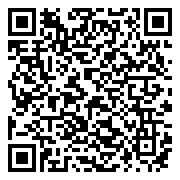

Accurate flow measurement is crucial to the success of oil and gas operations. Whether in oil drilling, gas development, or oil and gas processing facilities, precise flow measurement ensures operational efficiency and safety. This course is designed to provide essential knowledge and hands-on training to facility operators, technicians, and engineers involved in flow measurement processes. Participants will not only learn theoretical concepts but also practical applications to improve oil flow measurement and gas flow measurement in real-world scenarios. The training emphasizes ongoing support, encouraging attendees to bring questions and challenges from their operational environments, even after the course concludes.
This Oil and Gas Processing Flow Measurement course is an essential investment for anyone involved in oil and gas drilling, oil and gas development, or flow measurement in oil and gas facilities. Whether you're a technician, engineer, or operator, mastering flow measurement technologies will enhance your ability to manage accurate and efficient operations. With hands-on training and a deep dive into the latest measurement devices and techniques, this course will equip you with the skills necessary to optimize processes and ensure accurate flow measurement across a wide range of oil and gas applications.
